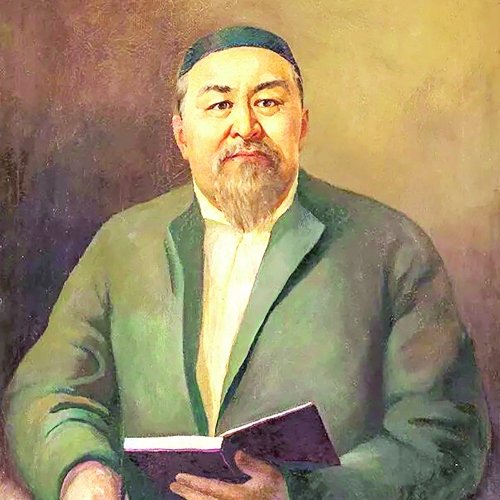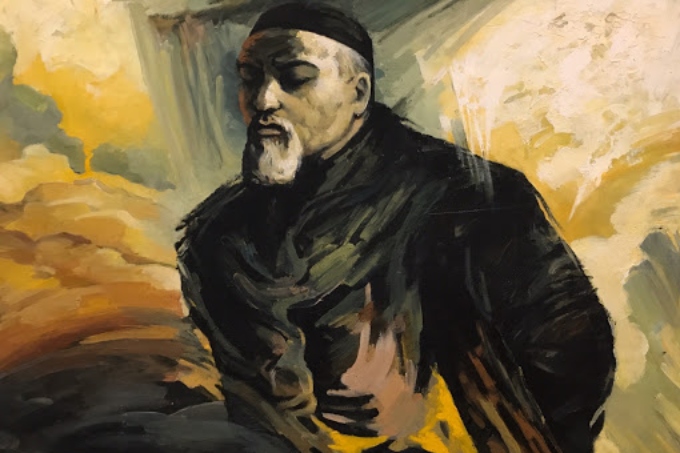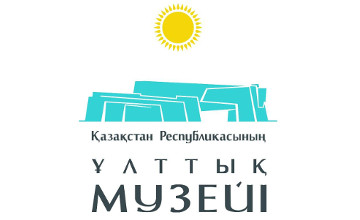Abai Kunanbaev is the Shakesphere of Kazakh literature. His Book of Words, «Kara Sozder», created by the great thinker constitute an ethnic philosophical work. This creation of his is an exploration of Kazakh national life in the second half of the 19th century. He influenced social affairs in the country where he lived.
Why do the Kazakhs look at each other like wolves? Why do not they have empathy to relatives, why is there no truth? When and where from did idleness and laziness come into the blood of the proud steppe peoples? Great sages have noticed long ago: each idler is weak-willed and cowardly; a weak-willed man is always boastful; a boastful man except cowardice is also a fool; and the fool is always ignorant and dishonest. Out of dishonest come the greedy, quarrelsome and talentless creatures, useless in the world.
That's happened to us. And the reason for this is the removal of agriculture, commerce, crafts and science. We only think how to increase our flocks and herds, provide cattle not only for us, but also for our children. When it succeeds, the herds are passed to the shepherds, and we, newly appeared rich people only eat meat to satiety, drink our heady kumyz, have fun with beauties, and enjoy running horses. If winter yurts are getting crowded, we start to trade or struggle with neighbors, making slander, bribery, blood feuds. The victim also oppresses another neighbor.
And one day, a black song idea was born: let the people get poorer more and more, because the poorer people, the cheaper their work, the roomier pastures and the more defenseless their winter yurts. We dream about the impoverishment of the contenders, they want to bankrupt us. So, tell me, is it possible to wish good to each other?
We began to feud, fight; we divided into groups and in order to defend our wealth and pastures, started bickering for the power. No one was left out of this vortex. People did not leave their homelands to learn an unfamiliar craft, did not cultivated fields, and did not seek to benefit from the trade. They traded only themselves, adhering to one or to the other party.
Thieves did not disappear- they were needed for quarrels. But the best people were slandered, criminal proceedings were initiated against them, false witnesses were selected. And all this was done in order to block the path to the power for the honest. Slandered and humiliated, some of them turned for help to the powers that be, and then the steppe lost another honest son. There remained one way to more proud one - while away his days in prison.
Rural municipality governors achieved their position by guile and cunning, and supported the unjust, because it’s better to make friends than feud with similar. Cunning is limitless –impossible to determine who will deceive tomorrow.
There is the truth in what the proverb says: «Never judge a man by his actions, but judge by his intentions». It turns out that people have believed that nothing can be achieved by the honest work, but they can get everything through deception.
Where is the root cause of this trouble?
Rural municipality is selected for three years. The first year flies in the little offenses of the people who elected him, in mutual reproaches and flirting. The second year goes in the fight of the governor with the candidate on his place: to try to win even on the distant approaches to elections. The third year continues in giving promises because everyone hopes to remain in place of the governor for the next period. I see how in this turmoil my people are getting shallow every year and become more immoral.
It’s hard to look at them. Why, for example, not to elect a rural municipality out of the people who were educated in Russian? If not, then let the rural municipality be appointed by a county chief or even by the military governor. There will be less work.
It would be also good not to elect but appoint the judges for them not to look back at every step on steppe tycoons. There would be less slander.
Biys - steppe judges - have already made harm because they have completely lost the good grandfather's traditions. Not every Biy remembers now «old truths», bequeathed by the ESIM-Khan, or «shining path», drawn by Kasym-Khan, or «seven bodies of law» left by the wise Tauke. But they still have to know that their outdated laws and regulations do not respond the spirit of time, prevent new life. Where can we find the wise Biys? There are almost none.
Our grandfathers used to say: "Where there are two Biys, four disputes are being born." The meaning of these words is that an even number of Biys will never come to a consensus. I think it would be better to elect three Biys on every rural district, to elect the most worthy and on the constant term. Then the replacement of any of them will be an event and a reminder of the justice for the others. But Biys should not immediately decide litigation themselves. My mind is. Quarreling parties choose one defender, they are joined by a mediator, and these three lead a particular case. If the case will not be solved, one of Biys, which, for example, can be selected by lot, comes to help them. Wouldn’t this be the way to solve many disputes of our lives?















